Anxiety is a natural, inescapable part of the human condition. In fact, it can sometimes be both good and healthy: Sometimes anxiety is a kind of warning, helping us to get out of harm’s way or to prepare ourselves for important events. To experience occasional anxiety is normal, yet to experience constant anxiety, a never-ending sensation of being overwhelmed, is something altogether more worrisome. In fact, it may point to the presence of an anxiety disorder.
Anxiety disorders represent the most common form of mental health condition in the world—affecting more than 40 million U.S. adults. Anxiety can cloud perfectly normal, everyday occurrences with dread, and it can dampen the enjoyment of times that should be filled with joy. The good news is that anxiety disorders are treatable, and recovery is possible—but first, it is important to understand what anxiety disorders entail.
Signs and Symptoms of Anxiety Disorders
As with other mental health disorders, anxiety can be highly variable; even two people with the exact same diagnosis may experience different sets of symptoms. With that said, there are some common signs and symptoms of anxiety disorders to be aware of:
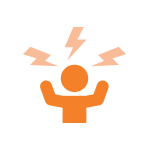
Feelings of Panic
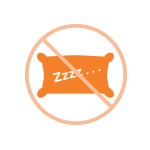
Difficulty Sleeping

Heart Palpitations
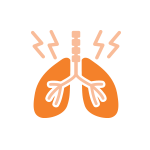
Shortness of Breath

Cold and Sweaty Hands or Feet
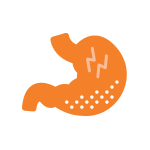
Nausea

Dizziness
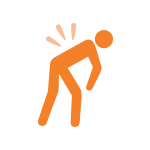
Muscle Tension
Other symptoms may also present themselves, just depending on the specific anxiety disorder that is diagnosed. That initial diagnosis will be key for providing a path to treatment and recovery.
Emotional Symptoms of Anxiety
More specifically, those who struggle with an anxiety disorder may find themselves battling a number of emotional symptoms. A partial list of these symptoms includes:
- Feelings of dread, fear, or apprehension
- A constant feeling of tenseness or jumpiness
- Difficulty concentrating on anything for very long
- A constant vigilance for signs of danger
- Feeling that your mind has gone “blank”
- Irritability or a tendency toward anger
At the presence of any of these emotional symptoms, it is vital to be evaluated and potentially treated for an anxiety disorder. This is the first step toward recovery.
Physical Symptoms of Anxiety
Not all of anxiety’s symptoms are emotional. Many of them affect the physical body. Just a few of the physical signs and symptoms of anxiety include:
- Heart palpitations; the feeling of a fluttering heart, or in some cases a pounding heart
- Sweatiness, especially of the hands or feet
- Frequent need for urination or diarrhea
- Tremors, twitches, or muscle tension
- Insomnia or difficulty falling to sleep at night
- Shortness of breath
These physical symptoms underscore that anxiety is a very real disease—not a feeling or a choice. As such, seeking clinical treatment and care is a foremost priority.
Types of Anxiety Disorders
Anxiety disorders can clearly affect the mind and the body in different ways. Not only are the symptoms variable, but also anxiety disorders can be classified in several different ways. The different types of anxiety disorder include Generalized Anxiety Disorder, Obsessive-Compulsive Disorder, Phobias, and more.
Generalized Anxiety Disorder
While occasional anxiety is normal—especially during stressful seasons of life—feelings of constant or recurring anxiety, interfering with day-to-day responsibilities and enjoyment of life, are often signs of Generalized Anxiety Disorder. This condition can develop in adults, teens and even children, and may pose life-long problems and obstacles. The hallmark of GAD is a persistent sense of worry, about issues both large and small; it is also marked by an inability to relax or to set those anxious feelings aside. Treatment is available and recovery is possible, and it starts by getting the proper diagnosis from a mental health care facility.
Anxiety Attacks
Another form of anxiety disorder is the anxiety attack. Again, everyone has moments where they suddenly feel stressed or overwhelmed. Anxiety attacks come on strong and are characterized as an immersive sense of panic. A racing heartbeat, chest pain and difficulty breathing can also accompany anxiety attacks. The person experiencing the anxiety attack will feel as though he or she is about to faint—or perhaps even die. Getting regular anxiety attacks can be debilitating, but recovery is possible when you seek the right clinical care.
Obsessive-Compulsive Disorder
Obsessive-compulsive disorder is another type of anxiety attack, even if it is not always identified as such. OCD is characterized by both obsessions (intrusive or unwanted thoughts and impulses) as well as compulsions (acts or rituals that you cannot keep yourself from doing). Though these obsessions and compulsions may not make any sense, and indeed may be harmful, they are also unavoidable. OCD is chronic, persistent, and long-lasting—but like these other anxiety disorders, it is also treatable. The recovery process begins with the correct diagnosis, and then a long-term recovery action plan.
Phobia
To feel afraid sometimes is a normal part of human life. Sometimes, however, fear can be persistent and irrational—and in those cases, it may point to a phobia. Phobias are a type of anxiety disorder characterized by a persistent and irrational fear over an object or situation that poses little or no real danger yet causes a high level of anxiety and avoidance. There are countless specific phobias that exist, all of them marked by different kinds of fear—but what matters most is that all of these phobias are examples of anxiety disorders, and treatment should be sought.
Social Anxiety Disorder
Social anxiety disorder is sometimes abbreviated as social phobia. Essentially, what it means is that a person has an unreasonable and excessive apprehension about appearing in a social situation. This is something altogether different from introversion or shyness; rather, it is an intense nervousness about talking to other people, being watched, and being judged. Social anxiety disorder is marked by false beliefs and distorted thinking, including misconceptions about the negative thoughts of others. Recovery from social anxiety disorder will take time and commitment, but it is possible—and it begins with a right diagnosis and action plan.
Post-Traumatic Stress Disorder
Many of us experience traumas in our life—events that are horrifying and harrowing, and that leave us feeling truly helpless. Combat veterans face trauma in the line of duty, but trauma can also be the result of emotional or physical abuse, among other things. Sometimes this trauma can trigger an anxiety disorder known as post-traumatic stress disorder or PTSD. Some common symptoms of this include flashbacks, or an inability to shake the sensation of that traumatic experience; or, a complete inability to talk about it. In any case, recovery is possible through a commitment to therapy, treatment and care.
Helping a Family Member or Friend with Anxiety Disorders
What can you do to help a family member or close friend who exhibits the signs of an anxiety disorder? Start with understanding. Educate yourself about the condition and how it affects the mind. Remind yourself that an anxiety disorder is not a choice or a matter of behavior. Compassion and empathy are the greatest things you can offer during the recovery process.
You might also reach out to your loved one, offering to speak openly about their struggle. Sometimes, being a good listener is the best thing you can do. Finally, make sure to encourage your friend or loved one to seek recovery. While you cannot make that person change, you can direct them to some of the resources available to them, including the treatment options at WestBridge. You can also offer your love, support and encouragement throughout the recovery process.
The Connection Between Anxiety Disorders and Substance Abuse
Those who struggle with an anxiety disorder can often struggle with a substance use disorder, as well. In fact, those who have an anxiety disorder are more likely to also have an addiction problem. The reasons for this can be complicated. Often, it is an issue of self-medication. Someone with an anxiety disorder may turn to drugs or alcohol to help relieve some of the symptoms of anxiety, and that self-medication may spiral into a struggle with addiction.
In other instances, the connection is a little bit more difficult to pin down. Both the substance use and the anxiety disorder can stem from the same underlying cause—trauma, brain chemistry, or something else. In any case, drug and alcohol use only ever make anxiety disorders worse, so dual diagnosis care is vital.
Therapy for Anxiety Disorders
For those who are struggling with an anxiety disorder, treatment is the best way to recovery. The process begins with a dual diagnosis, in which both the anxiety and any co-occurring conditions—such as substance use disorders or depression—can be identified. From there, a recovery action plan can be individualized to address the needs and symptoms of the participant.
Therapy for anxiety may come in different forms for different people. Individual therapy, group therapy and ongoing coaching can all be integral to the recovery process. In some cases, medication may also be administered to help control some of the effects of anxiety.
Recovery from anxiety is not something that happens overnight; in fact, the process may last a lifetime. With the right therapy and clinical care, however, recovery is possible.
Get Help for Anxiety Disorders and Substance Abuse at Westbridge
For those dealing with the co-occurring disorders of anxiety and substance use, seeking dual diagnosis care is essential for living a life of fullness and freedom. WestBridge specializes in dual diagnosis, and has ample experience treating men with co-occurring mental health conditions. We take an evidence-based approach and offer proven results, as well as a warm and supportive environment for all of our clients.
Do not waste a minute in getting help for your anxiety disorder, or in seeking care for your friend or loved one. Reach out to the team at WestBridge today to learn more.